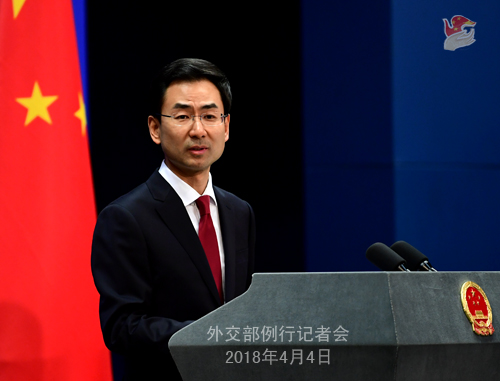China urges US to abandon tariff proposals
Xinhua | Updated: 2018-04-04 19:33

BEIJING - China on Wednesday urged the United States to abandon trade tariffs and return to dialogue, consultation and win-win cooperation.
"Those who attempt to make China surrender through pressure or intimidation have never succeeded before and will not succeed now," Foreign Ministry spokesperson Geng Shuang told a daily press briefing.
The US administration on Tuesday proposed a list of products to be subject to additional tariffs, covering Chinese exports worth 50 billion US dollars with a suggested tariff rate of 25 percent.
Geng said China has showed sincerity in seeking solutions through dialogue, "however, the United States has repeatedly missed the best opportunities for an appropriate resolution."
There is no winner in a trade war, he said, adding the US tariff proposals hurt the interests of the United States at first.
"We have noticed that the US business circle, consumers, media and think tanks had expressed concerns over the US proposals as well as its severe consequences," Geng said.
Many countries and international organizations have also voiced concerns and opposition to the unilateralist, protectionist action, he added.
"We hope the United States will pay attention to rational, pragmatic voices, abandon wrong practices at an early date, and return to the correct track of dialogue, consultation and win-win cooperation," Geng said.
China's strength and confidence have been strengthened through overcoming difficulties and dealing with pressure over 40 years of reform and opening-up, Geng said.
When responding to reports saying the US tariff list targeted products that benefit from the "Made in China 2025" action plan, Geng said the action plan aims to turn China into a great power in manufacturing.
"There is nothing wrong with strengthening our own manufacturing capability," Geng said.
The United States, with the world's leading technology and manufacturing capabilities, should be more confident, and compete fairly, rather than imposing unilateralist, protectionist measures, said the spokesperson.
























